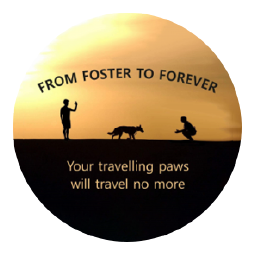Tips & Suggestions
- For the first 24/48 hours let the dog settle, let them come to you.
- Defra (department of environment food and rural affairs) explicit instructions are that all imported dogs must remain within the premises of the fosterer or adopter for the first 48 hours.
- Leave them to sniff and explore their new surroundings.
- When you take them into the garden, we suggest you use a long or extendable lead for the first few visits. (it’s amazing how high a dog can jump when scared, disorientated or confused).
- Please make sure that all exits out of your home are secure at all times. (dogs can be very quick at making a bolt out of a front or back door).
- Please make sure your dog is safely behind a door or stair gate when answering the front door or when people are coming in or out.
- If they object, don’t worry about fussing or cuddling your dog at first, they may never have received much or any affection in their life and may not understand what you are doing.
- They may never have been in a home environment so possibly not have encountered stairs, tv’s, vacuum cleaners etc. Please ignore behaviour that is negative. Do not cuddle or pet your dog if scared of regular daily chores like hoovering or the washing machine as by doing so you are saying it’s ok to be scared.
- It may be that our rescued dogs have had to scavenge and fight for food so your pet rabbit or other furries may seem like their next meal. You are strongly advised to keep other pets safe until you are 100% confident in the new dogs behaviour.
- If they refuse water or food at first just lift up food and offer it again later.
- They may occasionally have the runs, don’t worry as this could be due to a change of environment, water or climate. If it continues then contact the rescue agency.
- Some may not know how to play with toys or people, they will learn and enjoy in time.
- Rescue dogs may not be house-trained so please be patient encourage and reward.
- There may be a particular gender they are fearful of; gentle encouragement will help them overcome that fear.
- When walking your dog, for the first few weeks we advise you use a slip-lead as well as a harness or collar and lead, if something startles your dog they could easily get out of a collar and run off. (remember they may never have seen motorbikes, scooters, pushchairs etc.)
- Also walk the same route for the first week, they will become familier with their surroundings and settle more quickly.
- Always start as you mean to go on. If you don’t want them on the furniture, beds etc then put that into practice from day one. (remember its better they live by your rules not you live by theirs).
- Dogs don’t see themselves as that ‘poor little rescue’ only we see that, they just live for the moment.
- If you have solid boundaries and routine from the start then your dog will become more balanced and content.
- Don’t try to bath them to soon give them time to settle and try to make a bath fun to avoid stress.
- Take one day at a time, remember their life has been turned upside-down. Boundaries, time, patience, and love is all they ask for and they will repay in kind.
- Each day may present new challenges it’s sometimes good to note in a diary so it can be referred back to.
- Any worries, issues or questions then do not hesitate to contact the rescue agency team. (a problem is only a challenge waiting to be solved).
